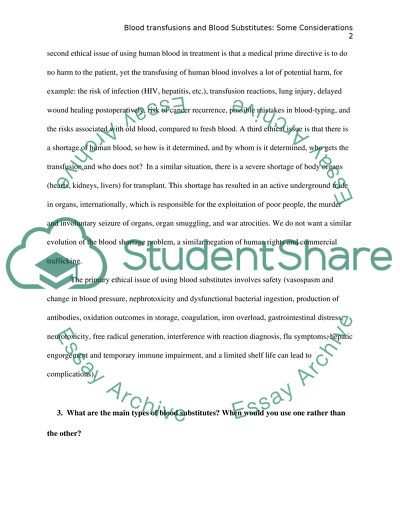Blood substitutes Essay Example | Topics and Well Written Essays - 500 words. Retrieved from https://studentshare.org/health-sciences-medicine/1594422-blood-substitutes
Blood Substitutes Essay Example | Topics and Well Written Essays - 500 Words. https://studentshare.org/health-sciences-medicine/1594422-blood-substitutes.


